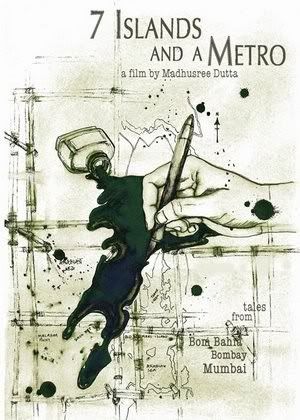There was yet another debate on the TV about nature versus nurture, this time provoked by the news that the museum of natural history in Oslo is organising an exhibition on homosexuality in animals.
It is never easy to say what do we inherit from our parents through the genes and what is more a "learned behaviour" depending upon where we grow up. Somethings things that may seem clearly hereditary are not always so.
Like people often said that my voice sounded exactly like my father's. And now on telephone, my son's friends mistake me for him and my friends and colleagues mistake him for me. Is that because of genes or is it because growing up together - did I subconsciously internalised my father's voice and my son did that with my voice?
Illnesses like high blood pressure running in families, have similar confusions. Do you get high blood pressure because your ma or grandma had it or because living in the same house, you share all your habbits of eating, exercising, reacting to stress?
It is much easier to deal with physical characteristics like the colour of your eyes, or the shape of your ears. That you did get through the genes.
There are many practical implications of the final conclusions of such debates, and that is why any conclusion is hotly debated. For example, if we accept that mental illnesses like neurosis are the result of genes, then perhaps all theories of Freud and therapies like psychotherapy trying to find the cause of your illness in the way your mom wrapped your nappies when you were three months old, can be considered as useless!
Another practical example is about criminal behaviour. If we accept that criminal behaviour is because of genes, then what use is putting the fellow in the jail or worse, hanging him? What could he do, he had no choice but to follow his genes?
So to go back to the debate on the TV on homosexuality in animals, the stakes are much higher. Different religions consider homosexuality to be against nature. Here, vatican officially assumes a similar position. If we accept that animals can also be homosexual, such arguments will be difficult to sustain.
Actually such debate is not new. Some years ago there was lot of discussion about some male Humbolt penguins in a German zoo who preferred to stick with their own company while the females were left in peace.
In the debate on the TV, there were similar arguments. They said, for example: it is the stress of living in the zoo, it is the stress of increasing urbanisation, these are not real serious relationships but only playful behaviour in animals, and so on. So it will always go on, each side refusing to be convinced by the other.
***
It is never easy to say what do we inherit from our parents through the genes and what is more a "learned behaviour" depending upon where we grow up. Somethings things that may seem clearly hereditary are not always so.
Like people often said that my voice sounded exactly like my father's. And now on telephone, my son's friends mistake me for him and my friends and colleagues mistake him for me. Is that because of genes or is it because growing up together - did I subconsciously internalised my father's voice and my son did that with my voice?
Illnesses like high blood pressure running in families, have similar confusions. Do you get high blood pressure because your ma or grandma had it or because living in the same house, you share all your habbits of eating, exercising, reacting to stress?
It is much easier to deal with physical characteristics like the colour of your eyes, or the shape of your ears. That you did get through the genes.
There are many practical implications of the final conclusions of such debates, and that is why any conclusion is hotly debated. For example, if we accept that mental illnesses like neurosis are the result of genes, then perhaps all theories of Freud and therapies like psychotherapy trying to find the cause of your illness in the way your mom wrapped your nappies when you were three months old, can be considered as useless!
Another practical example is about criminal behaviour. If we accept that criminal behaviour is because of genes, then what use is putting the fellow in the jail or worse, hanging him? What could he do, he had no choice but to follow his genes?
So to go back to the debate on the TV on homosexuality in animals, the stakes are much higher. Different religions consider homosexuality to be against nature. Here, vatican officially assumes a similar position. If we accept that animals can also be homosexual, such arguments will be difficult to sustain.
Actually such debate is not new. Some years ago there was lot of discussion about some male Humbolt penguins in a German zoo who preferred to stick with their own company while the females were left in peace.
In the debate on the TV, there were similar arguments. They said, for example: it is the stress of living in the zoo, it is the stress of increasing urbanisation, these are not real serious relationships but only playful behaviour in animals, and so on. So it will always go on, each side refusing to be convinced by the other.
***





